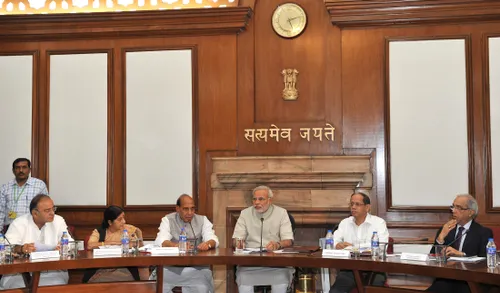Lok Sabha Passes: An Analytical Overview
Introduction
The Lok Sabha, the lower house of India’s Parliament, plays a critical role in shaping the country’s legislative landscape. When the Lok Sabha passes a bill, it signifies a crucial step in the legislative process, affecting governance, policy-making, and the day-to-day lives of citizens. This essay explores the significance, process, and implications of a bill passing in the Lok Sabha, delving into the procedural nuances and the broader impact on the nation’s democratic framework.
The Legislative Process in the Lok Sabha
1. Introduction of a Bill
The legislative journey begins with the introduction of a bill in the Lok Sabha. Bills can be introduced by the government (government bills) or by individual members of Parliament (private members’ bills). Government bills are usually presented by ministers and are part of the government’s legislative agenda, while private members’ bills are introduced by MPs who are not part of the executive.
2. First Reading
The bill is introduced to the Lok Sabha during the first reading, which is primarily a formality. At this stage, the bill is read out, and its title and objectives are presented. There is no debate or detailed examination of the bill during this stage.
3. Second Reading
The second reading involves a detailed debate on the bill’s general principles and themes. Members of the Lok Sabha discuss the broad objectives and the implications of the bill. A vote is held at the end of the debate to decide whether the bill should proceed to the next stage.
4. Committee Stage
If the bill passes the second reading, it is referred to a parliamentary committee for detailed examination. Committees are tasked with scrutinizing the bill clause by clause, suggesting amendments, and considering expert opinions. This stage is crucial for ensuring that the bill is thoroughly reviewed and refined.
5. Report Stage
Following the committee stage, the bill, along with the committee’s recommendations, is presented to the Lok Sabha for further consideration. Members discuss and vote on the proposed amendments and changes to the bill. The bill may be further amended based on this discussion.
6. Third Reading
The third reading is the final stage in the Lok Sabha. At this stage, the focus is on the final version of the bill. Members debate the bill in its entirety, but the discussion is limited to the content of the bill itself, not its principles. A final vote is held to decide whether the bill should be passed.
7. Transmission to the Rajya Sabha
Once the Lok Sabha passes the bill, it is sent to the Rajya Sabha, the upper house of Parliament, for consideration. The Rajya Sabha can approve, reject, or suggest amendments to the bill. If the Rajya Sabha makes amendments, the bill returns to the Lok Sabha for further consideration.
8. Presidential Assent
After both houses of Parliament agree on the final version of the bill, it is sent to the President of India for assent. The President’s approval is the final step before the bill becomes law. The President can either sign the bill into law or withhold assent, which is a rare occurrence.
Implications of a Bill Passing in the Lok Sabha
Table of Contents
1. Impact on Governance and Policy
The passage of a bill in the Lok Sabha often marks a significant shift in governance and policy. Bills can address a wide range of issues, including economic reforms, social justice, and national security. For instance, legislation on economic reforms can influence business regulations, taxation, and economic growth, while social justice bills can impact educational and welfare policies.
2. Public Reaction and Media Coverage
Bills that pass in the Lok Sabha can generate substantial public reaction and media coverage. High-profile bills, such as those concerning major economic or social reforms, often lead to widespread debate and scrutiny. Public opinion can influence the implementation and effectiveness of the legislation.
3. Political Ramifications
The passage of a bill can have significant political implications. It reflects the strength and effectiveness of the ruling party or coalition in managing legislative priorities. Additionally, controversial bills can impact the political landscape, influencing electoral prospects and party dynamics.
4. Legal and Administrative Changes
Once a bill becomes law, it leads to legal and administrative changes. Government agencies and institutions must adapt to new regulations and guidelines established by the legislation. This can involve changes in administrative processes, legal frameworks, and policy implementation.
5. Socio-Economic Effects
The implementation of new laws can have far-reaching socio-economic effects. For example, legislation on environmental protection can lead to improved sustainability practices, while labor laws can impact workers’ rights and working conditions. The overall impact on society depends on the scope and effectiveness of the legislation.
Challenges and Criticisms
1. Legislative Delays and Bottlenecks
The legislative process can be slow and subject to delays. Bills may face prolonged debates, amendments, and procedural hurdles, which can hinder timely legislative action. This can be problematic in addressing urgent issues and implementing necessary reforms.
2. Political Controversies
Bills can be a source of political controversy, especially when they involve contentious issues. Disagreements between political parties or between the Lok Sabha and the Rajya Sabha can lead to stalemates and compromise the effectiveness of the legislative process
Conclusion
The process of a bill passing in the Lok Sabha is a fundamental aspect of India’s democratic framework, reflecting the legislative priorities and governance strategies of the country. The passage of a bill signifies a critical step in shaping national policies and addressing key issues. While the legislative process is designed to ensure thorough scrutiny and debate, it also faces challenges and criticisms that can impact its effectiveness. Understanding the intricacies of this process is essential for appreciating the role of the Lok Sabha in India’s democratic governance and the broader implications of legislative actions on society.








